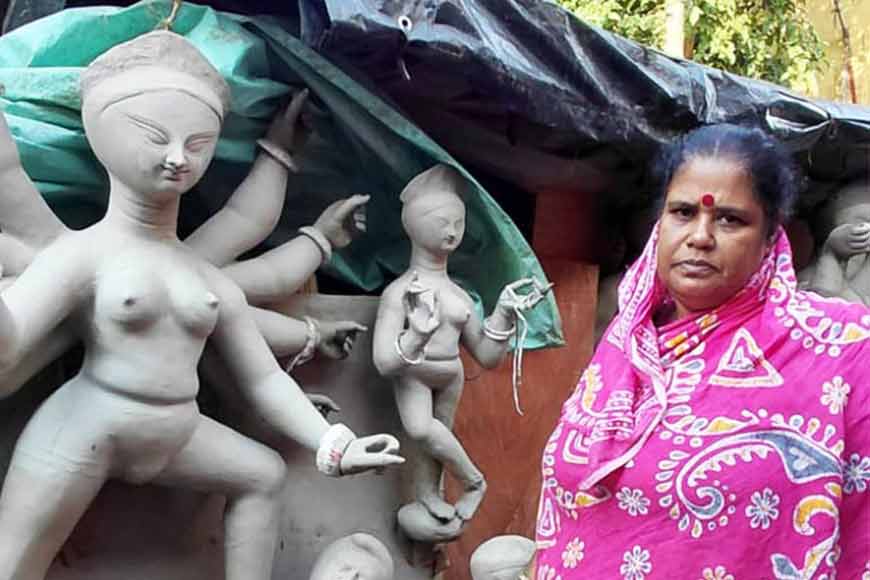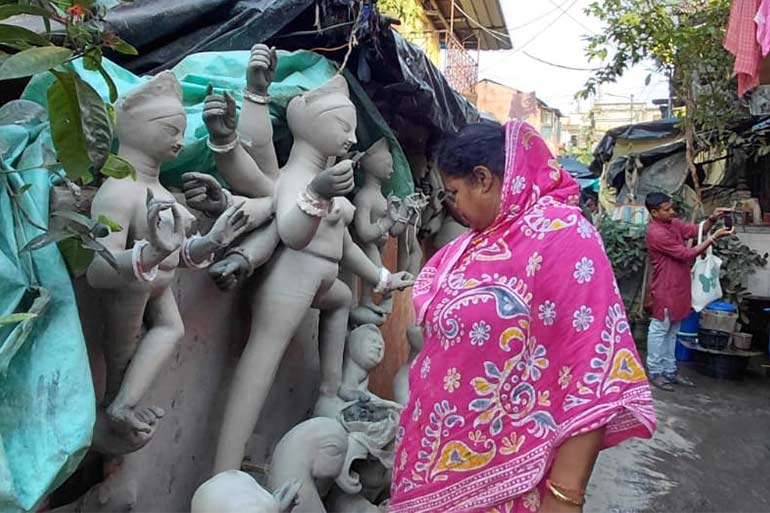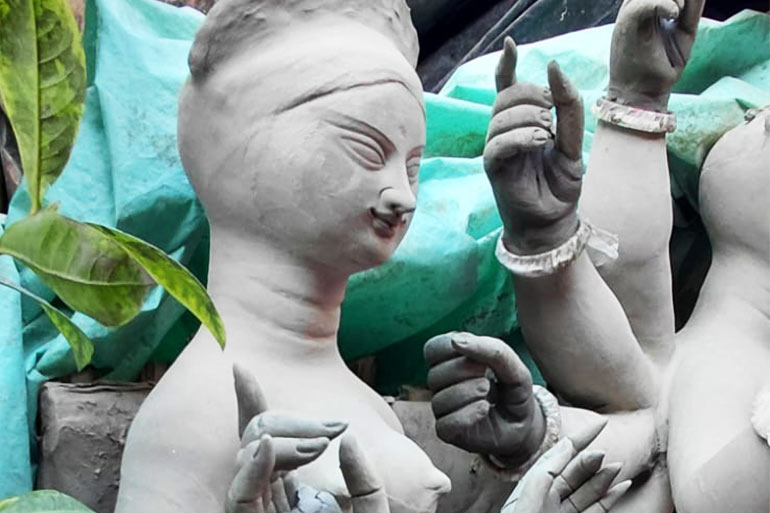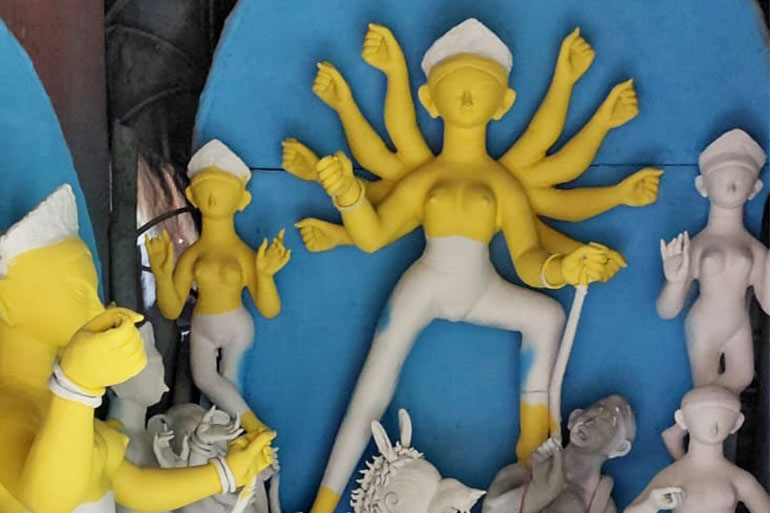When Life Demanded, She Created Durga: The Tale of Kakoli Pal - GetBengal Story

In the Bengali imagination, Durga is more than Adi Shakti Mahamaya, the primordial force. She is Uma, the daughter of the house—who returns once a year with her four children, stays for a handful of days, and on Dashami morning sets out again for Kailash, her husband’s home. When she leaves, her parents’ house falls silent. But beyond Giriraj and Girirani, Bengal has countless other parents of the Mother Goddess—idol-makers who, with infinite care, raise her from a lump of clay, give her eyes, weapons, ornaments, and finally send her away. For them, the emptiness begins with Mahalaya.

Kakoli Pal is one of those mothers; she is an idol-maker in Kumartuli. Her small, dark studio has the same smells as any studio that smells of straw and bamboo and clay, where she forms the figures of Durga and her children in the traditional ekchala style. She paints in their eyes with a steady hand, attire them in silks, and applies jewelry to the idols, like she does with her two actual daughters. From Mahalaya onward, her clay daughters leave home for pandals across Kolkata. Not just Durga—throughout the year her studio gives birth to Lakshmi, Saraswati, Kali, Jagaddhatri, and Ganesh.
Kakoli’s journey is one of resilience. Born into a patua family in Nadia’s Dhubulia, she became the daughter-in-law of Kumartuli. Until 2003, her life revolved around household chores, not clay. That year, tragedy struck. Her husband—the family’s sole breadwinner—died suddenly of a brain stroke, leaving her with two daughters, just seven and one year old. Several orders for Kali idols were pending. Giving up was not an option. With her father’s help, she completed the idols, and thus began a career that has now spanned 22 years.

“I never thought I’d become an idol-maker,” Kakoli says, her hands never pausing on the clay. “But life left me no choice. What started as survival slowly became my identity.”
Her early days were not easy. Neighbors, older workers, and family pitched in and taught her the skills, let her use their tools, and supported her whenever she needed a lift. One by one, she rebuilt her family while keeping her father in law’s work of carving idols alive. Her older daughter is now married, and her younger one is in college studying fashion design. Like her idols, she shaped her family with patience and love.
If you enter her studio in Kumartuli before the forthcoming Durga Puja, you are transported back to the atmosphere of an ancient puja pandal. While the city is in the midst of a grand thematic celebration, Kakoli’s work is grounded in tradition, with Durga’s face carved in the shape of a betel leaf and eyes almost stretching to her ears, her skin adorned in the yellow color of the atosi flower. Her idols grace not only community pujas but also some of Kolkata’s oldest aristocratic households—such as the Mitras of Chorbagan and the Duttas of Hatkhola.
Yet, the profession remains heavily male-dominated. Even today, Kumartuli counts only three established women idol-makers. Still, more young women are stepping into the craft, inspired by artists like Kakoli. Slowly, the image of the Mother Goddess is finding form through women’s hands too.

Society often says, “Je radhe, se chul-o bandhe”—she who cooks can also dress her hair. But women today do far more; they juggle a thousand responsibilities, fighting battles at home and in the world outside. They are the living embodiment of Durga. And women like Kakoli, their hands smeared with clay, give shape to that warrior goddess who smiles in triumph after slaying all that is evil.
Kakoli’s journey is proof that storms will come, but they must be weathered. As Rabindranath Tagore wrote:
“Shakta ja taai saadhte hobe, matha tule roibo bhobe…”
Note:
Translated by Krishnendu Mitra
To read the original Bengali article, click here










